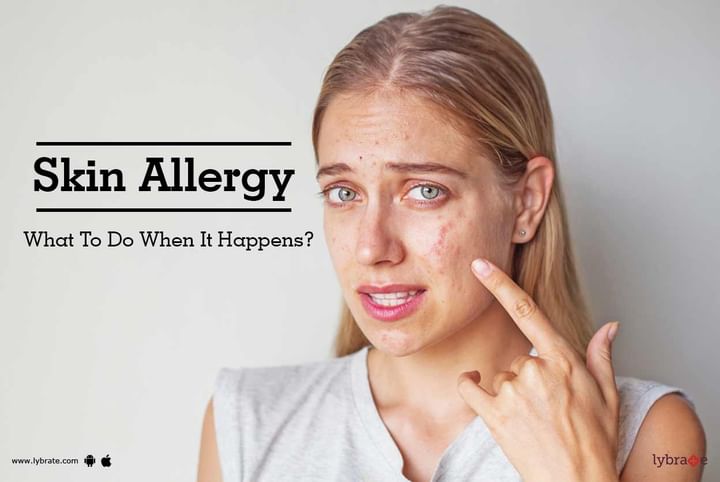Skin Allergy - What To Do When It Happens?
Skin allergy is one of the most common complaints in the general population. While the skin has an overall protective function, it also comes in contact with multiple chemicals and substances including pollen, animal dander, environmental pollutants, various metals that might irritate the skin.
When the body comes in touch with any of these, it produces what is known as histamines. Excessive histamines can cause the liquid portion of the cells (plasma) to escape, causing swelling, redness, and itching. This can happen due to either of the two reasons:
- Contact dermatitis, wherein the skin comes in touch with an irritant. This could be animal dander, detergents, laundry products, soaps, etc.
- It could also be due to eating some allergy-inducing substances like eggs, chocolates, milk, peanuts, etc.
Most common causes of contact dermatitis are listed below:
- Metals like nickel, which are used extensively in artificial jewelry
- Latex which could be used in kitchen and bathroom gloves
- Toiletries including soaps, creams, lotions, scrubs
- Laundry and toilet cleaning products
- After the first contact, it could take up to a week to 10 days for the symptoms to manifest
Testing for allergy: It is not easy to pin down the exact cause of the allergic reaction. Skin tests are done usually by exclusion, wherein the most likely causative agents are tested to see if they produce an allergic response. Once detected, the patient is advised to avoid contact or use of that particular agent. Patch test is done where the suspected allergy-causing agent is applied on the skin to see if it indeed causes an allergic reaction.
Management: Skin allergies are treated by a combination of topical and systemic therapy, both immediate and long-term.
When an allergy has actually happened, then the following needs to be done?
- Keep the area moisturized
- Avoid itching
- Apply a topical antihistamine agent
- Keep it free of metal or any other objects
- Avoid tight clothing, so that air circulation can help in healing
- Oatmeal powder helps in getting rid of the itching
- Use cool compresses to control the inflammation
- Use calamine and hydrocortisone creams
- Keep yourself hydrated
- Take systemic antihistamine if required to bring down the allergy response
- Once the causative agent is identified, it should be avoided.
- It is not easy to identify the allergen, but keeping a dairy whenever there is an allergic reaction helps. Look back to see what products or chemicals you came in touch with or used recently and by excluding some, the cause can be identified.
- If you are prone to skin allergies, always carry an antihistamine and also topical anti-allergy cream to manage the allergy. If you wish to discuss about any specific problem, you can ask a free question.



+1.svg)
